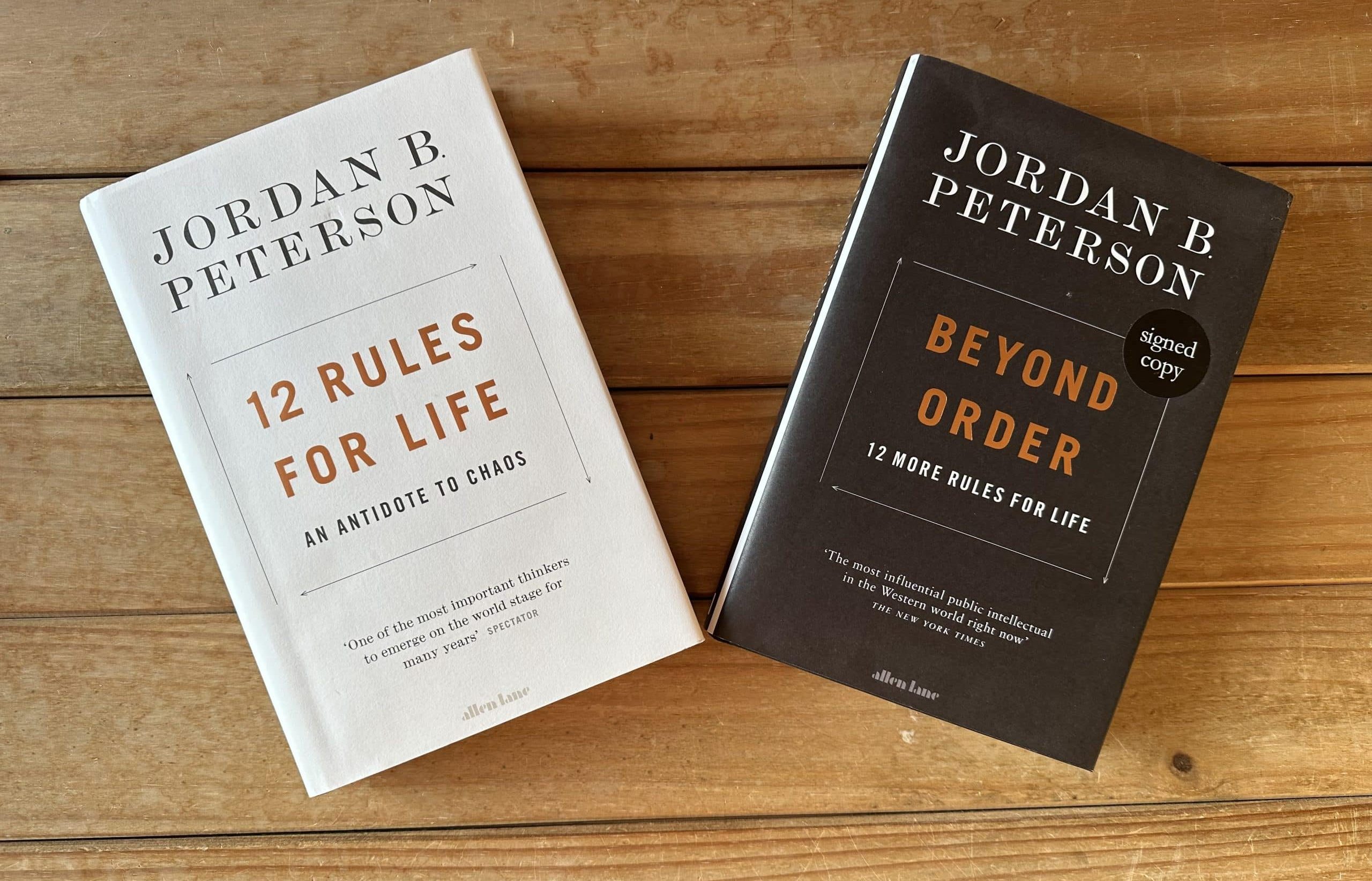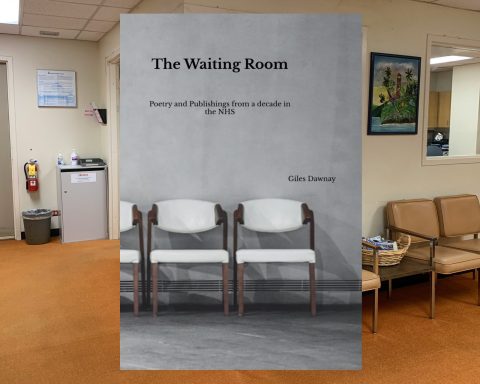 Richard Armitage is a GP and Public Health Specialty Registrar, and Honorary Assistant Professor at the University of Nottingham’s Academic Unit of Population and Lifespan Sciences. He is on twitter: @drricharmitage
Richard Armitage is a GP and Public Health Specialty Registrar, and Honorary Assistant Professor at the University of Nottingham’s Academic Unit of Population and Lifespan Sciences. He is on twitter: @drricharmitage
12 Rules For Life: An Antidote to Chaos1 and its sequel Beyond Order: 12 More Rules for Life,2 are the self-help styled works of Canadian clinical psychologist and controversial3 media personality, Jordan Peterson. Peterson’s other most notable works include his first book, Maps of Meaning: The Architecture of Belief4 (an academic psychology text), an enormous number of YouTube lectures, presentations and interviews beginning in 20135 and, more recently, The Jordan B. Peterson Podcast, which launched in 2016.
12 Rules For Life and Beyond Order, both best-sellers,6 emerged from Peterson’s initial interest in answering questions posted on the popular internet forum Quora.7
While 12 Rules For Life focusses on the dangers one faces from an excess of chaos, Beyond Order is concerned with the risks of abundant structure and the concomitant deficit of valuable chaos.
Both books convey their messaging through a collection of episodes from Peterson’s clinical experience, along with detailed accounts from his own personal, family and social domains. They are predicated on the central idea that order and chaos constitute fundamental elements of the human experience, and that meaning can only be found through the attentive, continuous and purposeful balancing of those two constituents. For Peterson, pathologies of psychology are largely the result of the sub-optimal balancing of order and chaos within the cardinal features of an individual’s life, such as their work, relationships, and community activities.
While 12 Rules For Life focusses on the dangers one faces from an excess of chaos, Beyond Order is concerned with the risks of abundant structure and the concomitant deficit of valuable chaos. Suffering is put forward as a simply unavoidable – even a centrally defining – feature of the universal human condition. By rejecting withdrawal as a nihilistically “suicidal gesture,” regardless of the intensity of that suffering, its potentially unjust nature, and the apparent futility of any effort to counter it, Peterson advocates for the ethical responsibility of each individual to search for the meaning that justifies that suffering. Only through this endeavour can a person truly satisfy their inherent obligation to cultivate purpose – which is usually at odds with their immediate predilections – and generate eudaimonia as a positive side-effect.
For me, the individual rules as espoused by Dr Peterson are each accessibly germane and disarmingly common-sensical. Accordingly, they do not represent novel philosophical insights when considered as individual maxims, and have as such been dismissed as mere rehash by various critical reviewers. Indeed, as Peterson himself admits repeatedly through his lecture series and podcasts, his work is largely inspired by Jungian psychology and drawn upon the wisdom of ancient myths and scripture.
Compared to the more academic Maps of Meaning, both 12 Rules For Life and Beyond Order offer accessible self-helping messaging designed for practical implementation in contemporary life. It is therefore unsurprising that the rules contained within them reflect themes often encountered within general practice consultations. Four of these – two to discipline disorder and two to rein in structure – remind me of patterns I see in practice, and in the techniques I deploy to assist them.
“Treat yourself like you are someone you are responsible for helping” (Rule #2 of 12 Rules For Life)
Humans have a seemingly endless capacity to care for other people – be it their children, other family members, their friends, or even strangers – which often exceeds their ability, or perhaps more accurately their willingness, to care for themselves. I see this frequently in the consulting room. Reframing the patient’s perspective on the necessity to take responsibility for their own health is often a powerful technique if presented as a means by which the patient can continue to help those they care about – “You can’t help your child/parent/friend unless you’re in good health yourself.” Presenting this as an obligation predicated on personal responsibility allows the patient to draw on their experience of being responsible for others, and channel that agency into improving their own health.
“Compare yourself to who you were yesterday, not to who someone else is today” (Rule #4 of 12 Rules For Life)
A central component of virtue ethics theory – that one’s character is a process to be continuously improved on – equally applies to one’s physical and mental health. While we are continuously bombarded with unrealistic comparators – like curated social media feeds and athletes in their prime – ancient Stoical philosophy warns us to disregard these as false idols, and instead focus on the improvements we have made within ourselves.8 As GPs, we encourage our patients to be resilient and persistent, and counsel them on the trajectory of the recovery that we expect. By protecting them from impatience and unhelpful comparisons – and by asking them to improve themselves only a small amount each day – we harness the scaling power of compounding growth over time.
“Do not do what you hate” (Rule #5 of Beyond Order)
…university frequently marks the abandonment of previously enjoyed channels of creative expression – such as art, music, theatre and dance – in exchange for generic activities of the social milieu…
I see a large number of university students in my clinical practice, many of whom present with anxiety and depression. A common theme within this cohort is a thorough disliking of their chosen degree subject, which is often revealed to be the choice of their parents. Concurrently, university frequently marks the abandonment of previously enjoyed channels of creative expression – such as art, music, theatre and dance – in exchange for generic activities of the social milieu – including nights out, excessive drinking, and substance misuse. A frequent result is an unhappy individual who feels lost and untethered, and without means for self-expression. By helping them recognise what brings meaning to their lives, and by contrasting that with the choices that fail to serve them positively, they often move to replace these harmful activities with those that sustain their mood and wellbeing.
“Work as hard as you possibly can on at least one thing and see what happens” (Rule #7 of Beyond Order)
Our patients are homo sapiens, and so are each uniquely complex biological, psychological, and social creatures. As such, even a simple chest infection is nested in a plethora of interconnecting factors – including familial, environmental and economic determinants – that influence why their illness developed, the likelihood of its successful treatment, and the potential for its recurrence at a near or future date. Many patients, therefore, bring a litany of problems each in need of improvement. However, asking the smoking, drinking, sedentary vasculopath to address each of these problems in one concurrent effort is likely to lead in failure and disillusionment. Instead, by identifying the problem that is most susceptible to improvement – as determined by conversation with the patient at its centre – a more favourable outcome is likely to be reached.
References
- J Peterson. 12 Rules For Life: An Antidote To Chaos. Penguin, 2019.
- J Peterson. Beyond Order: 12 More Rules For Life. Penguin, 2021.
- https://www.theguardian.com/science/2018/feb/07/how-dangerous-is-jordan-b-peterson-the-rightwing-professor-who-hit-a-hornets-nest and https://www.theguardian.com/commentisfree/2018/jun/22/what-the-left-gets-wrong-about-jordan-peterson [accessed 24 January 2023]
- J Peterson. Maps of Meaning: The Architecture of Belief. Routledge, 1991.
- Jordan B Peterson (YouTube channel). https://www.youtube.com/@JordanBPeterson [accessed 22 December 2022]
- 24 Rules For Life. Penguin. https://www.penguin.co.uk/books/319199/24-rules-for-life-by-peterson-jordan/9780241454473 [accessed 22 December 2022]
- Jordan B Peterson (Quora answer). https://www.quora.com/What-are-the-most-valuable-things-everyone-should-know/answer/Jordan-B-Peterson [accessed 22 December 2022]
- M Aurelius. Meditations. Penguin Classics, 2006
Featured photo taken by Andrew Papanikitas, 2023






